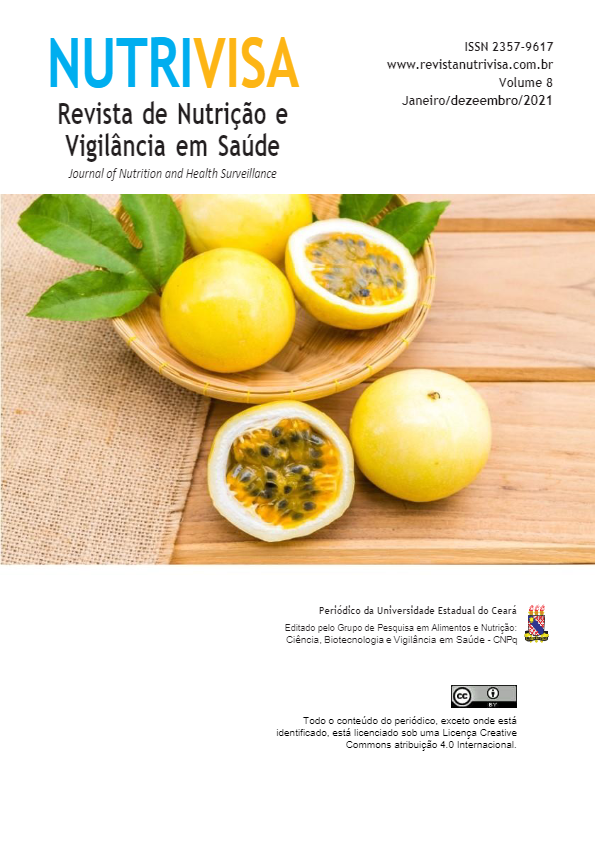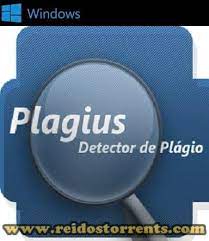Psicobióticos e suas influências nos tratamentos de depressão e ansiedade
DOI:
https://doi.org/10.59171/nutrivisa-2021v8e9633Palavras-chave:
Probióticos, eixo-intestino-cérebro, neuropatias, trantornos psicológicosResumo
A administração de probióticos e prebióticos com efeitos psicológicos benéficos passou a caracterizar o termo “Psicobiótico”. A utilização de Psicobióticos em tratamentos de depressão e ansiedade tem ganhando grande visibilidade. Sendo assim, este estudo tem por objetivo descrever o estado-da-arte sobre as relações entre a microbiota intestinal e a saúde mental em humanos, com foco nas influências dos psicobióticos no tratamento da depressão e ansiedade. Para a elaboração deste estudo, foi utilizada a metodologia de revisão descritiva da literatura científica. Com o aumento da incidência de doenças mentais como a ansiedade e a depressão, o aumento dos estudos para o tratamento de tais doenças também foi intensificado. O intestino está diretamente ligado ao sistema nervoso através do eixo intestino-cérebro, sendo assim, a microbiota intestinal tem um papel fundamental nos transtornos de humor. Dessa forma, os benefícios que os probióticos apresentam vão além da prevenção e tratamento de disfunções intestinais ou do sistema imunológico, os probióticos, tem-se demonstrado, influenciam positivamente nos transtornos mentais como a depressão e ansiedade. Através do levantamento de novos artigos sobre o tema, foi possível concluir que os psicobióticos vêm se mostrando uma boa alternativa ou auxílio no tratamento convencional da depressão e ansiedade, contribuindo também para a saúde do cérebro em geral. Porém, ainda são necessárias pesquisas clínicas mais complexas para desvendar a fundo todos os benefícios e os processos por trás desses.
Referências
ABHARI, K.; HOSSEINI, H. Psychobiotics: Tratamento de última geração para transtornos mentais. The American Journal of Clinical Nutrition, 2018.
AHMADI, S. H.; JAMILIAN, M.; KARAMALI, M.; TAJABADI-EBRAHIMI, M.; JAFARI, P. Probiotic supplementation and the effects on weight loss, glycaemia and lipid profiles in women with polycystic ovary syndrome: a randomized, double-blind, placebo-controlled trial. Human Fertility, 2017.
AKKASHEH, G. et al. Clinical and metabolic response to probiotic administration in patients with major depressive disorder: A randomized, double-blind, placebo- controlled trial. Nutrition, 2016.
ANSARI, Fereshteh et al. The effects of probiotics and prebiotics on mental disorders: a review on depression, anxiety, Alzheimer, and autism spectrum disorders. Current Pharmaceutical Biotechnology, 2020.
BOEM, F.; AMEDEI, A. Healthy axis : Towards an integrated view of the gutbrain health. World Journal of Gastroentrology, 2019.
BREIT, S.; KUPFERBERG, A.; ROGLER, G.; HASLER, G. Nervo vago como modulador do eixo cérebro-intestino em doenças psiquiátricas e inflamatórias. Front Psychiatry, 2018.
CEPEDA, M. Soledad; KATZ, Eva G.; BLACKETER, Clair. Microbiome-gut-brain axis: probiotics and their association with depression. The Journal of neuropsychiatry and clinical neurosciences, 2017.
CHUNG, H. J.; SIM, J. H.; MIN, T. S.; CHOI, H. K. Abordagens metabolômicas e lipidômicas na Ciência dos Probióticos: Uma Revisão. Journal of Medicinal Food, 2018.
EVRENSEL, A.; CEYLAN, M. E. O eixo intestino-cérebro: o elo perdido na depressão. Clinical Psychopharmacology and Neuroscience, 2017.
FENG, Q.; CHEN, W. D.; WANG, Y. D. Gut microbiota: an integral moderator in health and disease. Frontiers in Microbiology, 2018.
GREENER, Mark. Psychobiotics: bacterial hope for depression?. Progress in Neurology and Psychiatry, 2018.
HADI, A. et al. Clinical and psychological responses to synbiotic supplementation in obese or overweight adults: A randomized clinical trial. Complementary Therapies in Medicine, 2019.
HUANG, Ruixue et al. Efficacy of probiotics on anxiety: a meta-analysis of randomized controlled trials. Neuropsychiatry, 2017.
KELLY, J. et al. Transferring the blues: depression- associated gut microbiota induces neurobehavioural changes in the rat. Journal of Psychiatric Research, 2017.
KIM, CS. et al. Probiotic Supplementation Improves Cognitive Function and Mood with Changes in Gut Microbiota in Community-Dwelling Older Adults: A Randomized, Double-Blind, Placebo-Controlled, Multicenter Trial. The Journals of Gerontology, 2020.
LIU, Richard T.; WALSH, Rachel FL;. Prebiotics and probiotics for depression and anxiety: a systematic review and meta-analysis of controlled clinical trials. Neuroscience & Biobehavioral Reviews, 2019.
LOGAN, A. C.; KATZMAN, M. Major depressive disorder: probiotics may be an adjuvant therapy. Medical Hypotheses, 2017.
LORENZO-ZÚÑIGA, et al. a new combination of probiotics, improves irritable bowel syndrome-related quality of life. World jornal of gastroenterology: WJG, 2017.
MACQUEEN, G; SURETTE, M.; MOAYYEDI, P. A microbiota intestinal e as doenças psiquiátricas. Journal of Psychiatry & Neuroscience, 2017.
MANGIOLA, F.; IANIRO, G.; FRANCESCHI, F.; Microbiota intestinal no autismo e transtornos do humor. World Journal of Gastroenterology, 2017.
MAROTTA, Angela et al. Effects of probiotics on cognitive reactivity, mood, and sleep quality. Frontiers in psychiatry, 2019.
MISRA, Snigdha; MOHANTY, Debapriya. Psychobiotics: A new approach for treating mental illness?. Critical reviews in food science and nutrition, 2019.
NAIR, M. Surendran; AMALARADJOU, M. A.; VENKITANARAYANAN, K. Antivirulence properties of probiotics in combating microbial pathogenesis. In: Advances in applied microbiology. Academic Press, 2017.
PHILLIPS, J. G. P. The treatment of melancholia by the lactic acid bacillus. The Journal of mental science, 1910.
PINTO-SANCHEZ, M.I. et al. Probiotic Bifidobacterium longum NCC3001 reduces depression scores and alters brain activity: a pilot study in patients with irritable bowel syndrome. Gastroenterology, 2017.
PRONUTRITION. Mercado brasileiro de probióticos é o que mais cresce no mundo. 2019. Disponível em: <https://pronutrition.com.br/mercado-brasileiro-de-probioticos-e-o-que-mais-cresce-no-mundo/ >. Acesso em 28 set 2020.
SHI, Lye Huey et al. Beneficial properties of probiotics. Tropical life sciences research, 2017.
SIVAMARUTHI, Bhagavathi Sundaram et al. Probiotics in human mental health and diseases-A mini-review. Tropical Journal of Pharmaceutical Research, 2019.
SMITH, A. et al. An Investigation of the Acute Effects of Oligofructose-Enriched Inulin on Subjective Wellbeing, Mood and Cognitive Performance. Nutrients, 2017.
SMITH, Kristen S. et al. Psychobiotics as treatment for anxiety, depression, and related symptoms: a systematic review. Nutritional Neuroscience, 2019.
STEENBERGEN, L. et al. randomized controlled trial to test the effect of multispecies probiotics on cognitive reactivity to sad mood. Brain, behavior and immunity, 2017.
TRAN, Nhan et al. The gut-brain relationship: Investigating the effect of multispecies probiotics on anxiety in a randomized placebo-controlled trial of healthy young adults. Journal of affective disorders, 2019.
VITELLIO, Paola et al. Probiotics in Psychosocial Stress and Anxiety. A Systematic Review. Journal of Gastrointestinal & Liver Diseases, 2020.
WEI-HSIEN; et al. Alteration of behavior and monoamine levels attributable to Lactobacillus plantarum PS128 in germ-free mice. Behavioural Brain Research, 2017.
WGO. Diretrizes Mundiais da Organização Mundial de Gastroenterologia WGO; 2017
World Health Organization. Depressão e outros transtornos mentais comuns. Genebra: OMS;
Disponível em: <https://www.who.int/publications/i/item/group-interpersonal-therapy-for-depression> Acesso em 15 set 2020.
YOUNG-KUM, KIM; CHEOLMIN, SHIN. The Microbiota-Gut-Brain Axis in Neuropsychiatric Disorders: Patho-physiological Mechanisms and Novel Treatments, 2018.
ZWICKEY, et al Modulação nutricional da microbiota intestinal: oportunidades futuras para a prevenção e tratamento de doenças neuroimunes e neuroinflamatórias. Revista de Bioquímica Nutricional, 2017.
Downloads
Publicado
Como Citar
Edição
Seção
Licença
Copyright (c) 2021 Geovane De Arruda Barbosa, José Manoel Wanderley Duarte Neto

Este trabalho está licenciado sob uma licença Creative Commons Attribution 4.0 International License.














